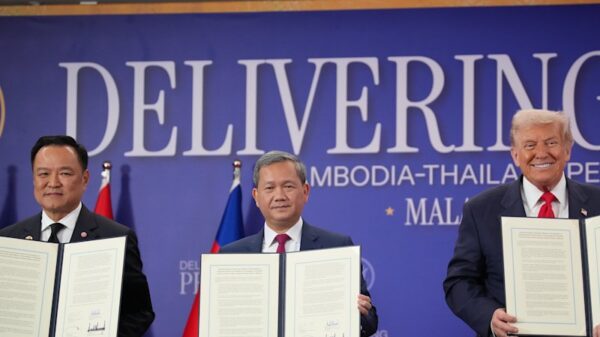Indian authorities have imposed a ban on 25 books in the disputed region of Kashmir, citing the titles as promoting “false narratives” and “secessionism.” The decision, announced on Tuesday by the Home Department of Jammu and Kashmir, adds to a growing trend of stringent media controls in the area. This ban includes works by renowned authors such as Arundhati Roy and constitutional expert A.G. Noorani, along with academics and historians like Sumantra Bose and Christopher Snedden.
According to the order, the banned books have been deemed “forfeit” under India’s new criminal code enacted in 2023. This effectively prohibits their circulation, possession, and access within Kashmir, with penalties that could include prison terms ranging from three years to life. The Home Department’s notice stated that these books “excite secessionism” and threaten the “sovereignty and integrity of India.” Officials claimed that the literature plays a “critical role in misguiding the youth” and inciting violence against the Indian State.
Authorities conducted raids on Thursday, targeting bookstores and roadside vendors to enforce the ban. Although officials did not disclose whether any materials were confiscated, the crackdown signals a significant escalation in efforts to control public discourse in the region.
Sumantra Bose, whose book “Kashmir at Cross Roads” is among those banned, rejected the accusations against his work. He expressed his commitment to finding pathways to peace in Kashmir, stating, “Throughout, my chief objective has been to identify pathways to peace so that all violence ends and a stable future free of fear and war can be enjoyed by the people of the conflict region.”
Kashmir has a long history of conflict, with both India and Pakistan claiming the territory in its entirety. Since 1989, militants in the Indian-administered area have fought against New Delhi’s rule, with many local Muslims supporting the rebels’ aspirations for either unification with Pakistan or independence. The Indian government attributes the conflict to terrorism allegedly sponsored by Pakistan, a claim that Pakistan denies, while many Kashmiris view it as a legitimate struggle for freedom.
Since the revocation of Jammu and Kashmir’s special status in August 2019, authorities have increasingly targeted dissenting voices. The ban on these books follows earlier measures, including police raids in February that resulted in the seizure of hundreds of titles linked to a significant Islamic organization in the region.
Mirwaiz Umar Farooq, a prominent resistance leader in Kashmir, condemned the recent ban. He stated, “Banning books by scholars and reputed historians will not erase historical facts and the repertoire of lived memories of people of Kashmir.”
While book bans are not common in India, the current government, led by Prime Minister Narendra Modi, has ramped up efforts to control narratives. This includes raids on independent media outlets and the imprisonment of journalists. There have also been attempts to revise educational materials to align with the Hindu nationalist agenda of the ruling Bharatiya Janata Party.
As the situation continues to evolve, the implications for freedom of expression and access to diverse viewpoints in Kashmir remain a pressing concern.





























































